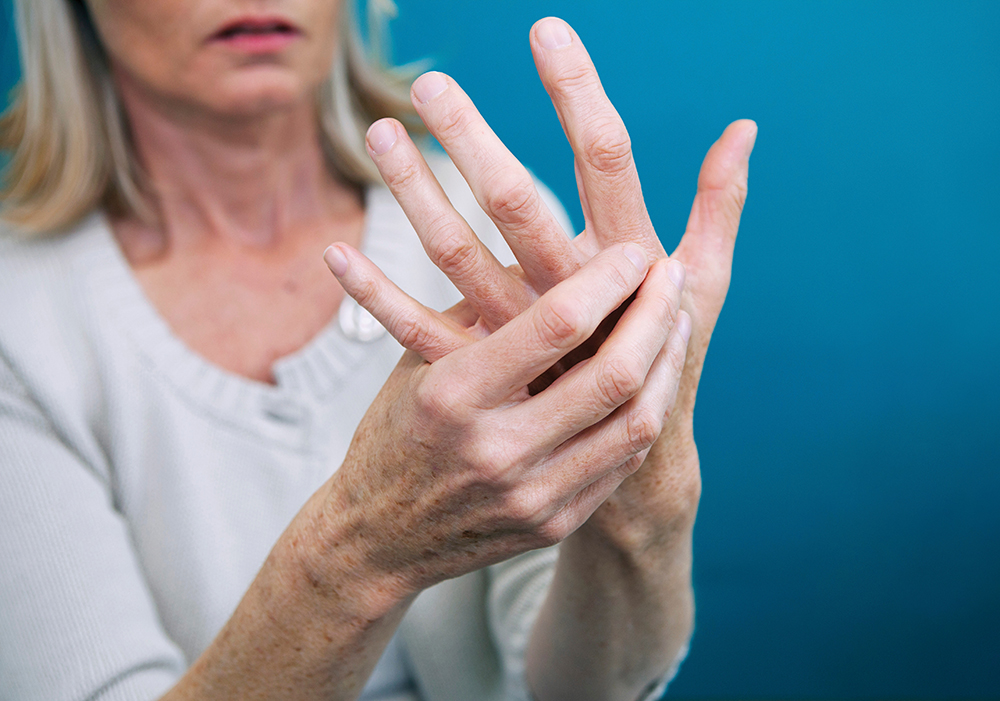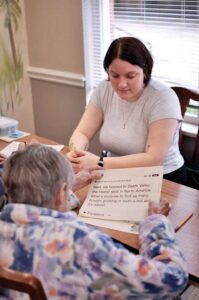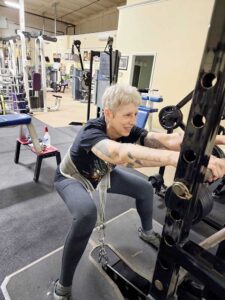By Alexander Germanis
Sympathy has been an integral part of healthcare for a long time. The term “bedside manner” was a coin termed to illustrate a physician’s ability to sympathize with his or her patient.
While sympathy is admirable of any physician, there is a deeper level of understanding that some physicians also possess: empathy. Having personally endured what a patient is going through is what can make a doctor empathetic toward their patient, elevating the doctor’s bedside manner to a whole new level and giving them keen insight on how to better treat those coming to them for care.
With peripheral neuropathy, Dr. Weinman of One Degree Functional Health has intimate knowledge of how to treat it, because he has suffered from it himself.
A Mystery Solved
When blood vessels around a nerve begin to die, the nerve is starved of the nutrients and oxygen once brought by the blood. The resulting condition, known as peripheral neuropathy, is characterized by numbness and tingling in the extremities, a burning sensation in the hands, legs, and feet, eventual difficulty in moving and loss of balance, and other symptoms.
While not a new condition, neuropathy is one of which doctors have only somewhat recently been aware and are starting to understand. Neuropathy is often mistaken as a diabetic condition. While there is an extremely high rate of neuropathy among those with diabetes, post-surgery, malnutrition, a lack of supplements, and poor blood flow have all been linked to the development of the condition as well.
But when Dr. Weinman first felt the onset of neuropathy, no one could help him identify it or its cause. “I went from doctor to doctor with no answers,” he recalls. “They continued to question why I was there. All tests came back as ‘normal.’”
As his condition worsened, his wife introduced him to a Dr. Karen May, who had had similar debilitating symptoms and finally found answers after her own worldwide search. Dr. May helped lead Dr. Weinman to a program of functional health. “This program was the only one that has helped Dr. May and myself,” shares Dr. Weinman. “It addressed underlying gut issues that the other doctors didn’t seem to connect. This program also taught me the importance and strategies to retrain the nerves.”
Now Board Certified in Neuropathy, Dr. Weinman is dedicated to finding and giving answers to others who are suffering the way he did.
Knowing the Enemy
The ancient Chinese strategist, Sun Tzu, said the only way to defeat an enemy is by knowing your enemy and knowing yourself. For centuries, the enemy that is peripheral neuropathy has gone undefeated because it was not understood, neither by those who had it nor those who sought to treat it.
“There are many who have neuropathy and have no idea,” Dr. Weinman states. “The nerves have become so damaged that there is a numbness to the pain sensory aspect to the nerves. This is a dangerous place to be. Pain is our bodies’ way of telling us something is wrong and needs to be corrected. Without that pain feeling, the nerves are continuing to be damaged without your knowledge.”
This happened to Dr. Weinman’s father, who did not know his nerves were being so damaged by neuropathy, he simply woke up one morning with drop foot, a paralysis of the nerves controlling the muscle movements in the lower legs and feet. “That is what can make it so scary,” says Dr. Weinman. “Many people have neuropathy and don’t even know until it’s too late.”
Not knowing what to look for or how to test for it is one of the major problems. An ultrasound blood flow test will not reveal neuropathy as such a test fails to show damage to the smaller blood vessels wrapped around nerves.
Even if someone is diagnosed with neuropathy, many are told it is simply a chronic condition with no cure and can only be managed with medications, surgeries, wheelchairs, and comfort cares.
Dr. Weinman happily proclaims this is not true. “Healthy nerve function is the aspect needed to heal from neuropathy,” he says. “To bring the nerve back to a healthy level is not only a goal, but a must to truly be healed from neuropathy.”
It’s Not One Size Fits All
Although the symptoms of neuropathy are similar, the underlying conditions and, therefore, the treatments are not a cookie-cutter approach. This is necessary especially as the various groups neuropathy affects are now expanding. Once associated with diabetes and cancer patients, doctors are starting to see post-illness patients struggling with the condition. Post-COVID neuropathy is increasing, as is the number of younger patients.
“As knowledge grows in Long COVID studies, I fear that there will be more and more people who find themselves in a hopeless situation,” Dr. Weinman laments. “Our mission is to give hope through healing.”
Healing begins by exploring each individual’s condition and underlying factors. “Each one has different aspects of their life that may be actively affecting their neuropathy,” the doctor says. “Myself or my associate will take each case to determine and apply what we have seen work best for the specific patient’s condition.”
As assessment begins with a complete motor and sensory exam. The area causing discomfort is examined as are other sites that could be connected with the nervous system. “We test different sensory skills and areas that may be producing the numbness and pain,” the doctor adds, “but also test the motor skills to see how the neuropathy has affected your muscles and balance, maybe even without you knowing it.”
It is important to remember one will only get out of the program what one puts in. Hard work and determination are what will make the program a successful one. Improvements can be seen within weeks with the proper dedication. Results often become an impetus unto themselves, the doctor says, driving people to reach the personal goals they had set for themselves. “Whether it is walking your dog, playing with your grandkids, or maintaining independence,” he says, “your goal becomes our goal for you as well, as we walk alongside you in the healing process.”
An actual healing can and does occur, as the doctor can personally attest due to his own experiences with neuropathy. “My life has changed dramatically for the better,” he assures. “I am now able to challenge my sons to a race (and win). I can focus on my wife instead of being obsessed with my own tingling and discomfort. I no longer fear being debilitated and losing my independence. I am able to live my live fearlessly, looking towards the future.”
Functional Health
Although peripheral neuropathy is one condition out of many, it can affect the body as a whole. Looking at and treating the body as a whole is what functional health is all about.
“Knowing that one system does not work solo within the body, we at One Degree Functional Health look at the overall health of the body and determine if there is deficiency that is making itself known by a variety of symptoms,” Dr. Weinman states. “We find that, though we are treating for one of your health goals, these programs also help accomplish other issues you may not have known you have had.”
Whether you know what condition you have or are still hoping for a diagnosis, the healthcare team at One Degree Functional Health will do whatever they can to get you answers and help you down the path of wellness. “Our goal,” says Dr. Weinman, “is to give hope, health, and happiness to you and your loved ones.”
One Degree Functional Health is located at 3840 N. Main Street, Suite A in East Peoria, IL. We also offer services in knee pain, shoulder pain, gut health, and spinal decompression. Call us at (309) 698-2500 or visit us at www.onedegreehealth.










